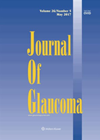You searched for "blindness"
RCOphth 2023 Preview
Here is our rundown of the RCOphth 2023 Annual Congress before it all kicks off, with dates for your diary, competitions, interviews and more!A nightmare on Doctor Street: Three
3 October 2024
| Peter Cackett
|
EYE - General
“Everyone at this party isn’t as young, fit and single as they’re making out. Yep, let’s face it, we’re all falling apart piece by piece. Doesn’t matter if you’re single or in a couple: You. Are. Going. To. Die” In...
Part 3: The Arclight Project: Implementation workshops
2 August 2024
| Andrew Blaikie, Chimgee Chuluunkhuu, Henry E Marealle, Frank Maliko, Dechen Wangmo
|
EYE - General
In this three-part series (Click here for Part 1 and Part 2) Andrew Blaikie and his team explore the role and application of the Arclight Device in Imaging of the Eye. The Arclight Project aims to support and enhance the...
Sustainability in eyecare: Climate action in eyecare
4 August 2021
| Mitasha Yu, Imran Khan
|
EYE - General
Climate change will cause disruption to critical eyecare services and increases in rates of eye disease around the world. The International Agency for Prevention of Blindness has recommended 10 key areas of action on how the eyecare sector can address...
“Beware of the pigment”
Using some captivating artwork, Iheukwumere Duru describes key features of pigment dispersion syndrome. Pigmentary dispersion syndrome (PDS) leads to pigmentary glaucoma (PG) in approximately 35-50% of patients with the condition [1]. PG is the leading cause of non-traumatic blindness in...Cutting-edge practice in glaucoma care: what, how and why?
1 April 2016
| Nick Strouthidis, Winifred Nolan, Keith Barton
|
EYE - Glaucoma
More effective treatments and drug delivery modalities, implantable minimally invasive glaucoma surgical (MIGS) devices, as well as accelerating clinical research programmes, will transform the surgical and clinical management of glaucoma in the near future. There is also an ever-greater emphasis...
Eye Capacity: clinical need should drive ophthalmic service provision
1 February 2014
| Rod McNeil
Almost two million people in the UK suffer sight loss, a number forecast to double over coming decades. Major causes of blindness are age-related macular degeneration (AMD), glaucoma, diabetic retinopathy, cataract and uncorrected refractive error. Prevalence of these sight-threatening conditions...
Arterial stiffness and PEX
1 April 2014
| Lorraine North
|
EYE - Glaucoma
The authors describe a study of 25 newly diagnosed patients with pseudoexfoliation glaucoma (PEX) and 25 controls to evaluate carotid femoral pulse wave velocity (CF-PWV) values. The CF-PWV was assessed using a noninvasive device by measuring the pulse transmit time...
My top five: Emerging alternatives to manage and treat nAMD
3 April 2024
| Nikhil Sharma, Paras Agarwal
|
EYE - Vitreo-Retinal
Wet (exudative or neovascular) age-related macular degeneration (AMD) is characterised by choroidal neovascularisation, in which new blood vessels from the choroid invade through Bruch’s membrane. These blood vessels proliferate beneath or through the retinal pigment epithelium (RPE), causing patients to...
My Top Five: Emerging alternatives to manage and treat nAMD
3 April 2024
| Nikhil Sharma, Paras Agarwal
|
EYE - General
Wet (exudative or neovascular) age-related macular degeneration (AMD) is characterised by choroidal neovascularisation, in which new blood vessels from the choroid invade through Bruch’s membrane. These blood vessels proliferate beneath or through the retinal pigment epithelium (RPE), causing patients to...
The role of injection assistant devices in establishing a nurse-led AMD service
1 April 2018
| Hani Hasan
|
EYE - Vitreo-Retinal
The author shares his experience of setting up a nurse-led service to deliver anti-VEGF intravitreal injections and how injection assistant devices supported training. Age-related macular degeneration (AMD) has become a leading cause of irreversible blindness [1]. It is estimated that...
Simulating the visual impairment symptoms of age-related macular degeneration in virtual reality
5 June 2023
| Cameron R M Wilson, Ian Underwood, Baljean Dhillon (Prof)
|
EYE - Vitreo-Retinal
A new virtual reality application visually simulates age-related macular degeneration and demonstrates its progression over time including some Charles Bonnet syndrome hallucinations. Introduction Age-related macular degeneration (AMD) is the leading cause of blindness in developed countries with the prevalence of...




